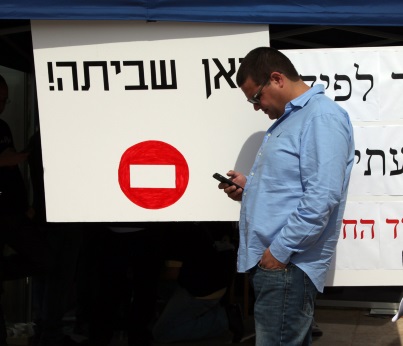
The protest of driving inspectors and employees of the Ministry of Transportation continues, in parallel with the continuation of organizational measures in other workplaces in the civil service. In accordance with the decision of the struggle headquarters of the Histadrut, tomorrow (Thursday) the customs workers will join the organizational measures and there will be disruptions in the expenditure and income of goods through all air, sea and land crossings.
Employees of the Ministry of Health, including employees of the district bureaus and laboratory workers, will also continue the sanctions. There will be no reception in the ministry units and in the health bureaus and no telephone answering will be given. It will also not be possible to import and export food products at border crossings. In order to alleviate urgent issues and life-saving issues, it was decided that some of the essential services would be provided as usual during the strike, including: treatment of rehabilitation devices and mobility for the disabled, medical committees and appeals booked in advance, breastfeeding stations, issuance of burial licenses and approval of life-saving drugs.
Sanctions will also be imposed on income tax, in which tax auditors will not go out to conduct tax audits; The employment service will not receive an audience and will not be answered by phone at all employment bureaus and Social Security branches throughout the country, which will continue to be closed to receiving an audience.
It should be noted that the examiners’ protest began following the publication of the government tender aimed at privatizing the driving tests and transferring the examiners to the status of contractor workers. The decision to start the struggle of civil servants and take organizational measures, has taken shape against the background of expanding abusive employment patterns in the civil service, promoting unilateral measures with negative consequences for workers and trying to erode the power of organized labor, while trampling on norms in collective labor relations. Workers on personal contracts and the attempt to transfer civil servants to the status of contractor workers.